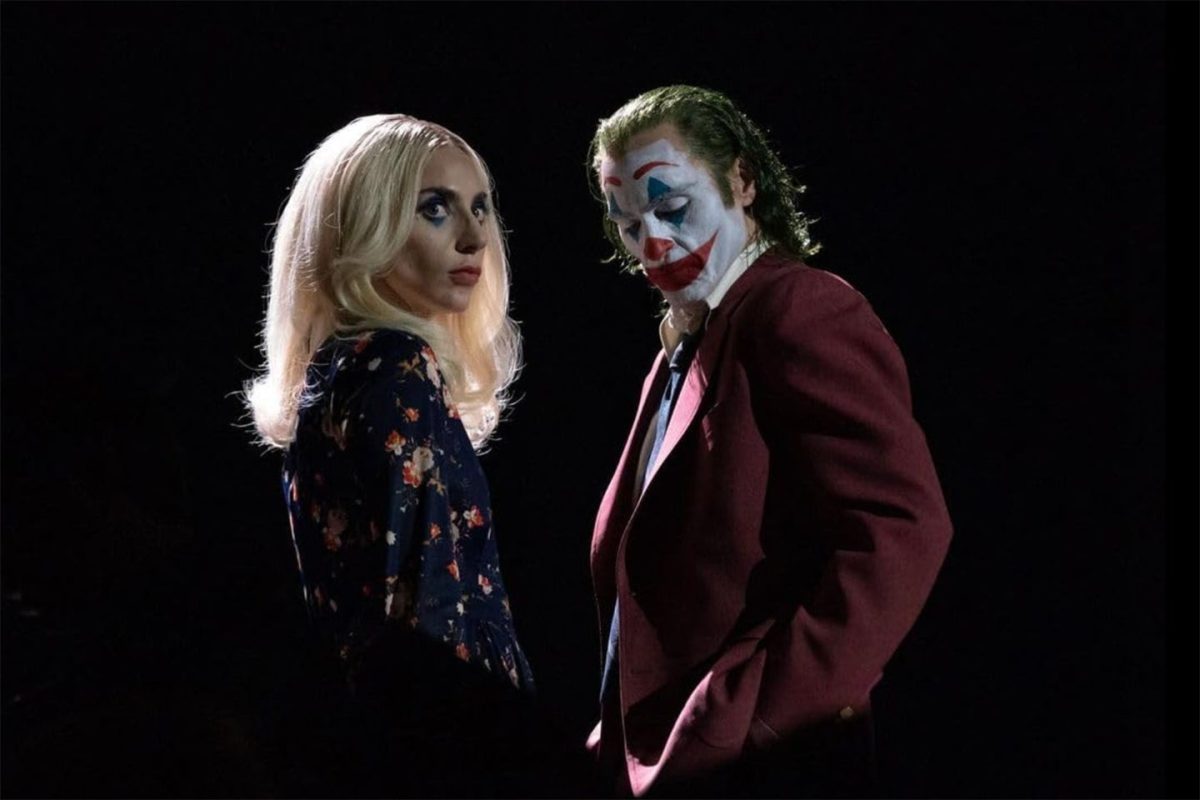Lady Gaga has been in the public eye for over a decade, transforming from the definition of camp to pop princess to jazz partner of Tony Bennett. Her newest persona is Harlequin, shown in her concept album of the same name that ties into her newest movie, “Joker: Folie a Deux.”
It’s not the highly anticipated “LG7” fans have been waiting for, or a continuation of her new single, “Die With A Smile” featuring Bruno Mars. “Harlequin” is a totally separate artistic phenomenon from Gaga’s other works, yet her skill and artistry transcend throughout the album.
The album has two dueling perspectives through which it can be interpreted: the viewpoint of Gaga and the viewpoint of Harlequin. According to Apple Music, after wrapping up production of “Joker: Folie a Deux,” Gaga realized on an interview with the Zane Lowe show that she “still hadn’t moved on from the character she’d been portraying” and began to formulate the album while still in the mindset of Harlequin.
When listening to the album as sung by Harlequin, one can hear a showmanship’s façade of joy towards the front of the album on songs like “Good Morning” and “Get Happy.” Tracks 1-7 are modern takes on a boasting big band sound, featuring large orchestras and grand finales to each tune. But the album shifts during her cover of “The Joker,” a rock song originally from “Roar of the Greasepaint — Smell of the Crowd.” It’s almost as though Harlequin gets “bored” of the showmanship and drops the act, moving from the past to the present. The shift continues to a waltz with “Folie a Deux,” then the soulful “Gonna Build A Mountain,” to the gut-wrenching original entitled “Happy Mistake” and return to the facade in the finale “That’s Life.”
The most genuine moment in the album lies in “Happy Mistake,” which features lyrics like “I can try to hide behind the makeup/ But the show must go on” and “If I could bottle up a sunny day/ So brilliantly/ It’d wash away the sad mistakes.” The album is characterized by the breakdown of Harlequin, the genre and lyrics shifting to align with her loss of mental lucidity.
The artistry of the album lies in the dueling perspectives, and when listened to within the context of Lady Gaga instead of Harlequin, a whole new work is revealed. The first part of the album acts as a commemoration of the late Tony Bennett — the two were creative partners before his death earlier this year. She makes the jazz standards uniquely her own, bringing a pop twist in combination with a classic big band sound.
The album turn at “The Joker” and ending with “That’s Life” is carefully curated — it’s almost as though the first half of the album represents the brighter spots in Gaga’s career, and the second half shows the struggles she’s endured because of fame. The listener can bring themselves back to “Happy Mistake” as a point of rawness for not just Harlequin, but also Gaga, especially in the aforementioned lyrics.
When listening to the album from Gaga’s point of view, one can also see the skill required to make such a piece. The construction of the album in terms of the genre shift and song order is more telling of Gaga’s genius than some of the lyrics. The shift in the album from a façade to a breakdown is perfectly curated and allows the listener to feel the emotion not just in the lyrics, but in the instrumentation and Gaga’s voice.
Gaga was also in character while recording the album, stating on Apple Music’s “Zane Lowe Show,” “It’s Lee’s [Harlequin] voice, and it’s really raw, and it’s really naked. It’s very untrained. Not proper breathing.” Gaga’s dedication down to her breathing to ensure a correct portrayal of the character is a hopeful sign for the movie, “Joker: Folie a Deux,” which came out on Oct. 4.
While the concept album is a skilled work of art, the majority of the music isn’t something I would pick when looking just to listen. The music has a lot of meaning, and when looking at the album critically it is worth the time investment. But the songs I find myself reaching for outside of this perspective are limited. “The Joker” and “Happy Mistake” are the only tunes I could imagine hearing on the radio, and my personal tastes are drawn to the soulful “Gonna Build A Mountain.”
If you are looking for a big band, showy sound with a modern twist, then Gaga’s rendition of “Oh, When The Saints,” “That’s Entertainment” and “That’s Life” will suit your listening purposes. I’m finding that this album is made more for Gaga’s artistry and an exploration of the Joker project than for radio hits. It is a well-applied addition to the movie, but I don’t see it winning “Album of the Year” or reaching anywhere near Gaga’s other successes.
“Harlequin” is not “LG7,” and it’s not the comeback of “camp Gaga” that fans were hoping for, but it is a show of Gaga’s brilliance when it comes to music and a well-placed addition to the upcoming movie. “Harlequin” is available on all major streaming platforms, and the corresponding film, “Joker: Folie A Deux” released in theaters on Oct. 4.


